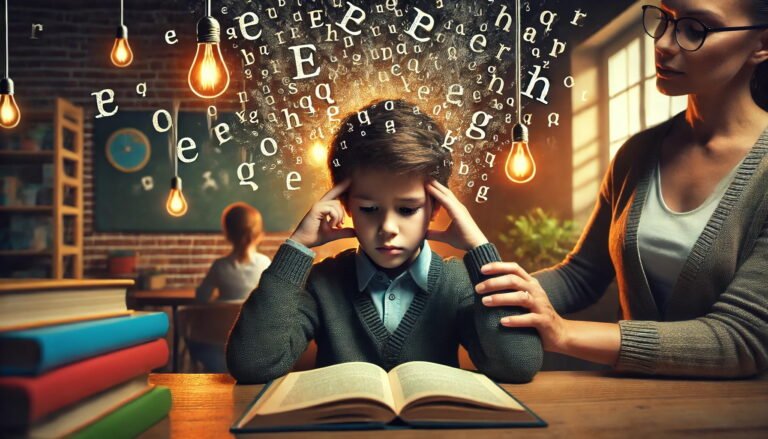Dyslexia: Understanding and Supporting Those Who Have It
Dyslexia is a learning difficulty that affects reading, writing, and, in some cases, language processing. It is a neurological condition unrelated to intelligence but rather to how the brain processes written information. Despite the challenges it may present, people with dyslexia have unique strengths that, with the right support, can be fully developed.
What is Dyslexia?
Dyslexia is a neurobiological learning disorder that affects the ability to recognize words accurately and fluently, as well as spelling and decoding skills. It is estimated that between 5% and 10% of the global population has some degree of dyslexia. People with dyslexia may struggle with reading aloud, understanding written texts, or remembering sequences of letters and numbers.
How to Identify Dyslexia
The symptoms of dyslexia can vary depending on age and severity. Some common signs include:
- Delay in learning to read and write.
- Difficulty remembering letter and number sequences.
- Problems pronouncing new words.
- Challenges following written instructions.
- Difficulties organizing thoughts in writing.
If a child or adult shows several of these symptoms, it is advisable to seek an evaluation by a specialist in learning difficulties.
Strategies for Managing Dyslexia
Fortunately, there are many strategies and resources that can help individuals with dyslexia develop their reading and writing skills. Some of them include:
For Parents
- Create a positive environment: Reinforce your child’s confidence by celebrating their achievements and highlighting their strengths.
- Use technology: There are apps and tools like audiobooks, text readers, and voice recognition software that can facilitate learning.
- Read aloud together: Discussing texts helps improve comprehension and reinforces a love for reading.
- Communicate with the school: Work with teachers to adapt teaching strategies to your child’s specific needs.
For Educators
- Multisensory methods: Integrating touch, movement, and sound into lessons helps reinforce learning.
- Use adapted texts: Materials with larger fonts, spacing between words, and contrasting colors can make reading easier.
- Flexible assessments: Allowing oral responses, extended exam times, and other adjustments can improve academic performance for students with dyslexia.
- Promote individualized learning: Adapting teaching methods to each student’s pace.
For Individuals with Dyslexia
- Recognize your strengths: People with dyslexia are often creative, have strong problem-solving skills, and think outside the box.
- Ask for support: Do not be afraid to request accommodations at work or school to help you perform better.
- Use organization strategies: Digital planners, to-do lists, and visual reminders can be very helpful.
- Practice reading: Although it may be challenging, reading frequently improves fluency and comprehension.
Recommended Therapies for Dyslexia
There are various therapies and methods that can help individuals with dyslexia improve their reading and writing skills. Some of the most recommended include:
- Multisensory Therapy: Methods like the Orton-Gillingham approach, which combines sight, hearing, touch, and movement to reinforce reading and writing learning.
- Language Therapy: Working with a speech and language therapist can help improve verbal comprehension and expression.
- Cognitive Intervention: Techniques that strengthen memory, attention, and information processing to facilitate learning.
- Occupational Therapy: Can help improve fine motor skills necessary for writing and hand-eye coordination.
- Assistive Technology: Applications, reading software, and voice recognition programs can make learning more accessible.
Encouraging a Positive Attitude
Beyond its challenges, dyslexia does not define a person. Many successful individuals have learned to manage it and have excelled in fields such as science, art, technology, and entrepreneurship. The key is to focus on strengths and growth opportunities.
Dyslexia is a challenge, but also an opportunity to develop unique skills. With the right support and a positive mindset, every person with dyslexia can reach their full potential. Parents, educators, and those with dyslexia can work together to turn obstacles into opportunities for learning and growth.
In Resources, you will find materials designed to help parents and educators, with tools to promote inclusion and activities for children to understand what they are experiencing and how to manage it positively. Our goal is to provide families and educators with the knowledge and tools needed to build a more inclusive and empathetic environment. Explore and join us in raising awareness together!













